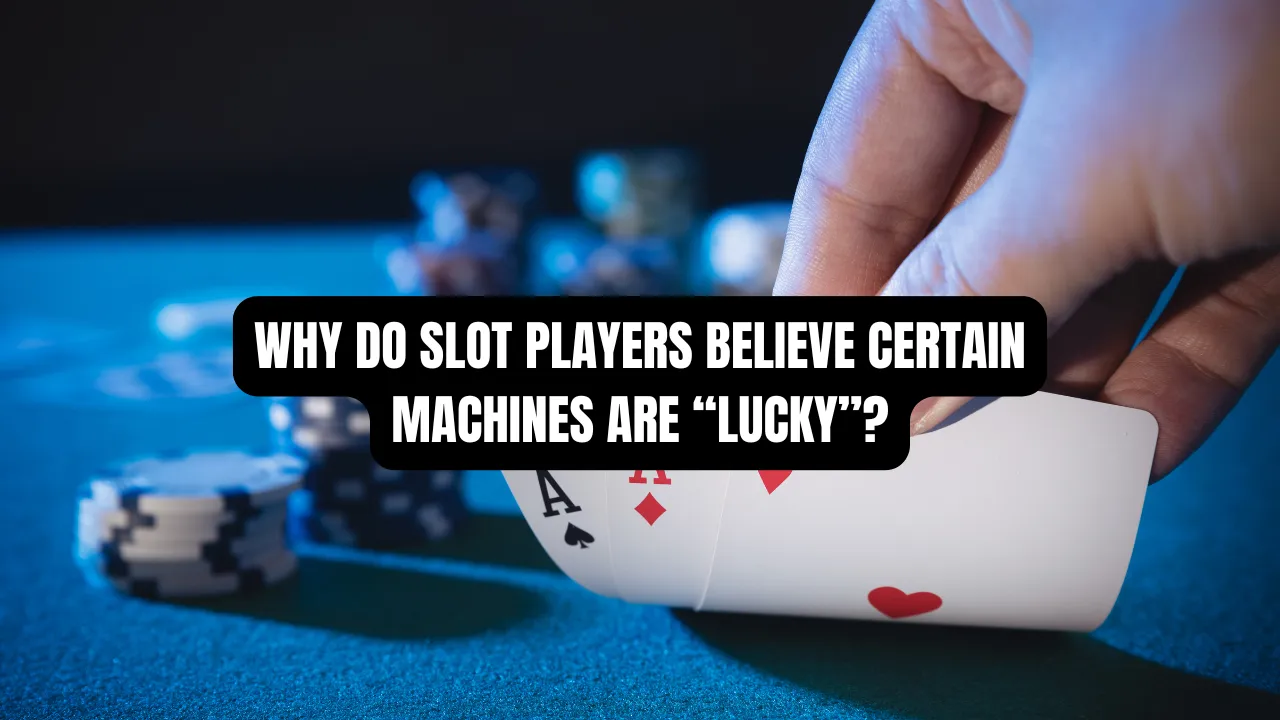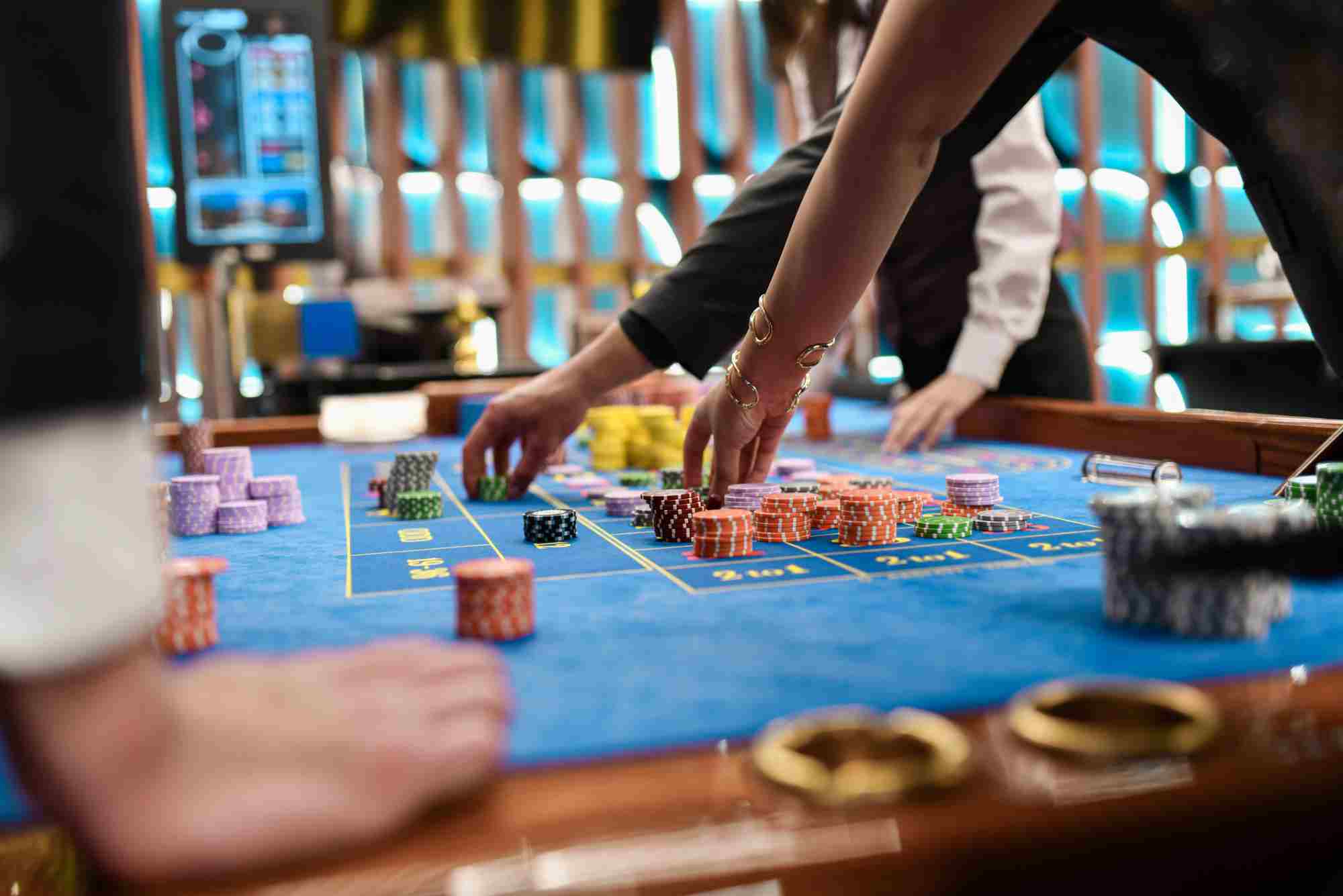If you’ve spent any amount of time in a casino, you’ve probably noticed that players often gravitate toward specific slot machines. Some insist that a certain machine has always treated them well, while others swear that a particular corner of the casino is where the “lucky” slots live. From an outsider’s perspective, this can look like superstition. But for seasoned players, the belief in lucky machines is deeply ingrained in the slot experience.
Understanding why players develop these beliefs requires a mix of psychology, probability, and personal experience. Casinos may not promote these ideas directly, but they certainly don’t discourage them either. After all, the myth of a lucky slot adds to the excitement and keeps people coming back.
The Psychology of Luck and Slots
At the core of slot machine superstition is the human brain’s natural desire to find patterns. Psychologists call this apophenia — the tendency to see connections and meaning in random data. Slots are a perfect playground for this tendency, because every spin produces a random outcome. Yet, when a player happens to hit a big win on a particular machine, their brain connects that event with the machine itself rather than acknowledging it as pure chance.
This is why one win on a slot can turn it into someone’s lifelong favorite. The mind stores the memory of the positive outcome, and every future visit to that machine reinforces the association, whether it produces wins or not. It’s less about logic and more about emotional memory.
Reinforcement Through Wins and Losses
Slot players also experience what’s known as variable ratio reinforcement. This is a reward system where the timing of rewards is unpredictable, making it one of the most addictive forms of reinforcement in behavioral psychology. Casinos design slots around this principle: you never know when the next win is coming, but you know it will come eventually.
When a machine delivers a win, the brain receives a shot of dopamine, a chemical that reinforces the behavior. If that win happens at a specific slot, players begin to feel that the machine itself has something special. Over time, losses are rationalized as part of the journey toward the next “lucky” payout.
The Role of Casino Atmosphere
Casinos are carefully engineered environments. The placement of machines, lighting, and sound effects all contribute to how players perceive their experiences. A machine near the entrance might feel lucky simply because it catches more attention and has a higher volume of play. Another machine tucked away in a quieter corner may feel more personal, leading players to attribute their wins there to good fortune rather than probability.
The environment fuels the perception of luck. Bright lights, celebratory sounds, and flashing screens amplify the emotional highs, making it easier for players to connect a sense of fortune to a specific machine.
Stories, Sharing, and Social Influence
Belief in lucky machines isn’t just an individual phenomenon. Players talk, and stories about “the slot that always pays” spread quickly in both land-based and online casinos. Even if you’ve never personally hit a jackpot on a certain machine, hearing others talk about its generosity can influence your own behavior.
This communal aspect reinforces the myth. In some circles, players will even exchange tips on which machines to avoid and which ones to play, despite the fact that every slot is governed by the same random number generator principles. The sharing of stories adds an almost folkloric quality to the casino experience.
Luck in the Digital Age
Online casinos have only amplified these beliefs. With thousands of digital slots available, players still form attachments to certain titles. A big win in a favorite game can trigger the same emotional memory loop that happens in a physical casino. Some players report that they feel a stronger bond with specific online slots because they can return to them anytime, day or night.
What’s interesting is that this belief in lucky slots has extended into newer formats, such as cryptocurrency-based gaming. Many players in the UK, for example, are exploring platforms like crypto casino uk, where the games function just like traditional slots but with faster payments and digital assets. Here too, players bring their old habits, clinging to particular games that seem to deliver wins more often than others, even though the underlying mechanics remain purely random.
Cultural Beliefs and Personal Rituals
In many cultures, luck is deeply embedded in daily life. From carrying a lucky charm to choosing specific numbers, people bring their cultural traditions into the casino environment. A machine may become someone’s “lucky” choice simply because it aligns with their personal rituals, such as being in the third row, having a certain color theme, or even displaying a specific symbol on its reels.
These rituals aren’t limited to what players bring with them. Some will rub the screen, tap the spin button in a certain rhythm, or wait for what they believe is the “right moment” to press. None of these behaviors influence the random outcome, but they enhance the sense of control and connection with the machine.
The Balance Between Reality and Belief
From a purely mathematical standpoint, no slot machine is luckier than another. They all operate on the same principles of randomness and house advantage. Yet, the belief in luck adds an irreplaceable layer of enjoyment to the game. It gives players a sense of narrative and personal connection that goes beyond the numbers.
Casinos thrive on this balance. They don’t need to market machines as lucky — players do that themselves. The result is an environment where both the reality of probability and the psychology of belief coexist, fueling the timeless appeal of slot machines.
Final Thoughts
The idea of a “lucky” slot machine may not hold up under the scrutiny of mathematics, but it doesn’t need to. Gambling has always been as much about experience as it is about odds. The stories, rituals, and personal connections players develop with certain machines are what make casinos feel alive.
For many, sitting down at a favorite machine is about more than hoping for a jackpot. It’s about chasing that feeling of familiarity, excitement, and the possibility that maybe, just maybe, this time the luck will swing their way. And in a world built on chance, that belief is powerful enough to keep the reels spinning.




